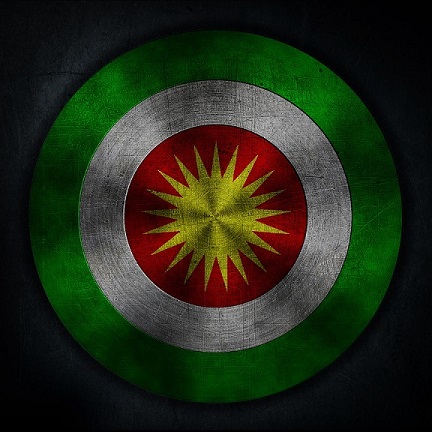Washington Kurdish Institute
October 2, 2018
The Kurds, who make up 12-15 percent of Iran’s population, have suffered immeasurable persecution at the hands of the Iranian theocracy since its establishment in 1979. The first military campaign by the Islamic Revolutionary Guard Crops known as (IRGC) against the Kurdish minority took place in August of 1979. After the fall of the Pahlavi Dynasty, the Kurds of Iran sought self-rule within a Federal Iran, in order to ensure their rights as a minority population that has historically been oppressed by various Iranian governments. It was also around this time period that Iran’s Supreme Leader Ruhollah Mūsavi Khomeini described the Kurds as “Sons of Satan,” in response to many Kurds deciding not to participate in the referendum to establish an Islamist regime. The IRGC campaign against Kurdish-dominant areas of Mehabad and Saqez, among other cities, left thousands of Kurds dead, with many more displaced and/or badly injured. The Iranian regime then imposed an economic embargo on the Kurdish provinces in an attempt to derail any Kurdish resistance movements looking to stand against the newly established Islamist regime.
Since the Iranian theocracy’s establishment, the execution rate among the country’s Kurdish population has topped that of any other group in the country — with mostly Kurdish political activists and members of Kurdish political parties being the victims of this state-sanctioned murder. Currently, thousands of Kurds remain in prisons, facing indefinite detention and likely execution. In addition, the government has banned Kurdish political parties, punishing any family members or direct associates of those Kurds who dare to exercise their political organizational rights. Many of these innocent family members and associates are imprisoned. The Iranian government has even targeted Kurdish political parties outside of Iran since at least 1981. In many cases, the Iranian regime’s intelligence service, known as Ettela’at, has assassinated Kurdish leaders, such as Abdul Rahman Ghassemlou. The late Ghassemlou was invited to hold peace negotiations with the regime in Vienna, only to tragically discover that the invite had been a ploy — Ettela’at forces shot and killed him and his assistants on European soil.
As a result of the lack of economic development, rampant unemployment, and government-sanctioned debilitating economic restrictions in the Kurdish provinces of Iran, many Kurds, since the 1980s, seek work as border porters. Known as Kolbars, these border porters illegally transfer goods between Iran, Iraq, and Turkey for a meager profit. Rich Iranian businessmen, with tight connections with the Iranian government, greatly profit off of these illegal border transfers. Yet while these robber barons profit, many Kolbars are shot and killed by Iranian border guards on a regular basis. Hundreds have been killed; thousands have been seriously injured. In many cases, even Kurds with a college education are forced to work as Kolbars because of lack of economic opportunity and the prevalence of employment discrimination.
The Iranian regime oppresses its Kurdish population in many other ways as well. For example, Kurds in Iran are not allowed to name their newborn children with certain Kurdish names, like Heresh (which means “campaign”) or Shorsh (which means “revolution”). These aforementioned names have been popular and respected in Kurdish culture for thousands of years.
Following the destruction of the Iran-Iraq War (1980-1988), rebuilding the Kurdish areas of Iran were the lowest priority for the Iranian regime. The blatantly sectarian government has always prioritized services to non-Kurdish, Shiite areas over the Kurdish areas. The regime has behaved similarly in the wake of natural disasters. For example, when the Kurdish city of Kermanshah was hit by a deadly earthquake in 2017, the Iranian regime failed to provide adequate aid and support for the city.
Today, the Iranian regime engages in the same behavior against its country’s Kurdish minority as it did in 1979 — that is, a behavior of terror and oppression. Since the beginning of 2018, Iranian border guards and the IRGC have killed tens of Kolbars and seriously injured 60 others. In addition, the regime has executed tens of Kurdish activists, with numerous others languishing in prison awaiting their murder.
And on September 8th of this year, the Iranian regime orchestrated a missile strike against the headquarters of Iranian Kurdish opposition groups in Iraqi Kurdistan, resulting in death and serious injury.
The Kurds only hope in Iran. For, they are left only to wait as the Iranian theocracy can easily take a bite out of them at anytime and even anywhere they seek: even outside of the country. To make matters worse, these human rights abuses are committed in light of the sympathy and support that the Iranian regime receives from the international community. It’s no wonder that the Kurds remain such an easy meal for the hunger of the murderous tyranny of the Iranian government.

